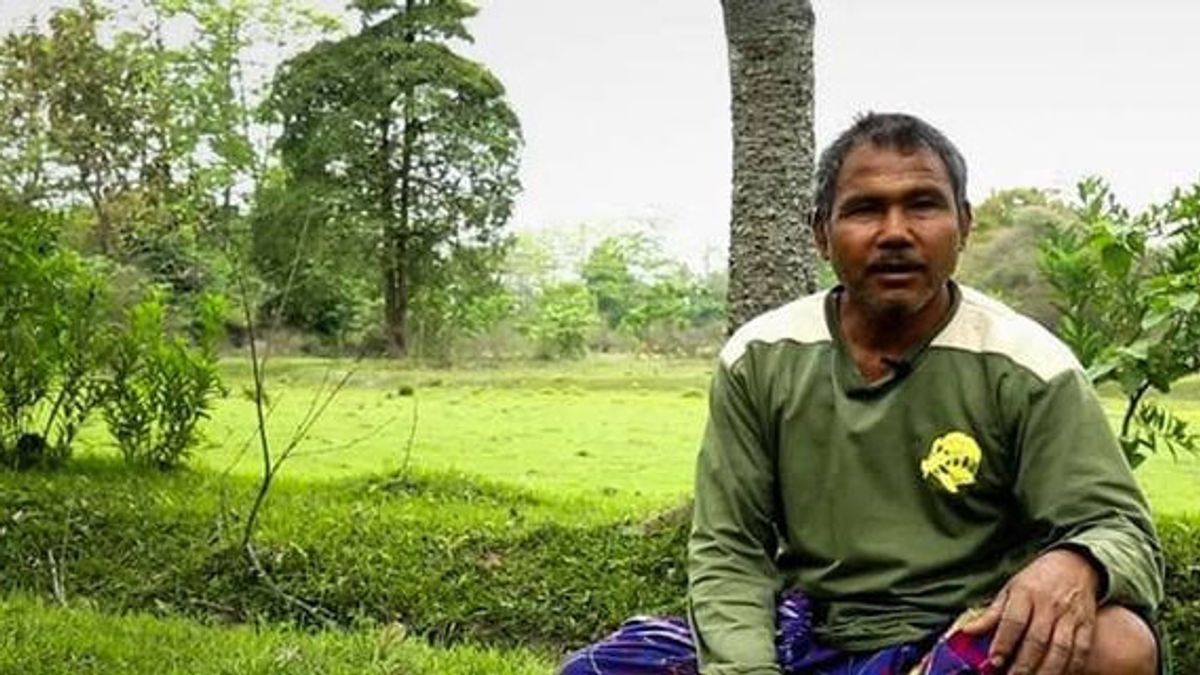JAKARTA - Every November 21st, World Tree Day is campaigned. Today is a reminder for the world's population to honor the services of an American nature lover, J. Sterling Morton, who is actively campaigning for the tree planting movement. One of the people who inherited Morton's spirit is Jadav Payeng. The man from India has succeeded in turning barren land into hundreds of hectares of forest, with trees that he has planted for 40 years.
We all have to agree, trees have an important role in the survival of living things. Trees as oxygen producers can be an antidote to global warming. In addition, trees can also prevent natural disasters such as floods, erosion, and others.
Trees are also a place for several types of living things to live. Trees are a source of life for humans and play an important role in nature. Therefore, it is obligatory for humans to protect trees.
Five years ago William D McMaster's YouTube channel made a documentary video entitled "Forest Man". He documented the story of the man from India Jadav Payeng who daily planted trees for 40 years.
Payeng, a descendant of the Mishing tribe who lives in Jorhat, in the northern state of Assam, India. He started planting his first tree in 1979. At that time he was still a teenager. He was moved to do this after the great floods hit Assam. The flood crushed the trees on the banks of the river. As a result the animals lost their homes.
According to the news he heard from the village elders, the animals were starting to lose their habitat due to the reduced forest area and the cutting of trees. On the elders' instructions, Payeng started planting his first tree seedlings, which he received from the village elders.
Payeng planted the tree seedlings on a large island in the middle of the Brahmaputra river, the name of the island Majuli. At first, he planted trees from the banks of the river and finally to almost the entire island. It was carried out for 40 years, while he was already 60 years old. As a result, the seeds he sowed were transformed into a forest field covering an area of 550 hectares.
Payeng, who is a farmer and makes money selling milk, has succeeded in transforming the barren land by himself. "Before, this was all just a stretch of sand. There were no trees, no grass. There were only dead logs. Now, the grass seeds doused with water from the river that originated in China are starting to grow, then they are self-pollinating," Payeng told reporters. npr.org.
Payeng still remembers the first tree he planted, as well as every tree that has now grown tall. "First bamboo trees, then I also planted cotton trees. Then I continued to plant all kinds of trees," said Payeng.
To NPR, Payeng showed him one of the oldest trees he had planted. The tall tree is 30 years old teak. On the tree that he showed, there was a scratch from a tiger's claw. He said, after this island became a forest, a tiger was there. He guessed that 85 cows and 86 buffalo were missing, so the big cat's food. He had met the tiger. One time. The cat didn't do anything to him.
"I'm not afraid," he said. "This one (tiger) killed a buffalo, saw me, then looked away," said Payeng.
From what he had done for decades, the Government of India bestowed him with the highest civilian award, namely Padma Shri, and several other awards.

The English, Chinese, Japanese, Arabic, and French versions are automatically generated by the AI. So there may still be inaccuracies in translating, please always see Indonesian as our main language. (system supported by DigitalSiber.id)













